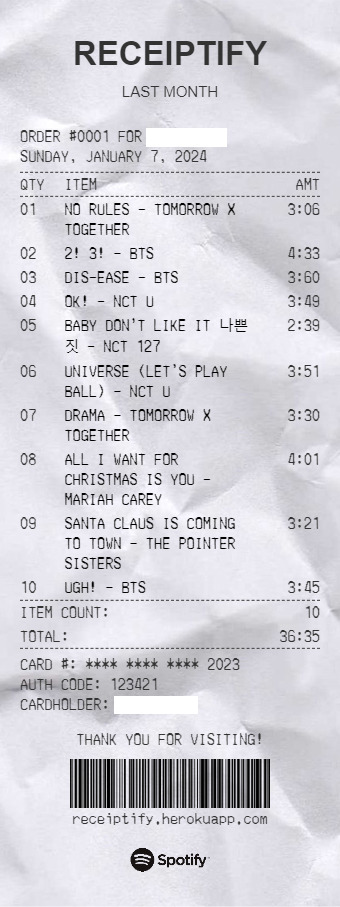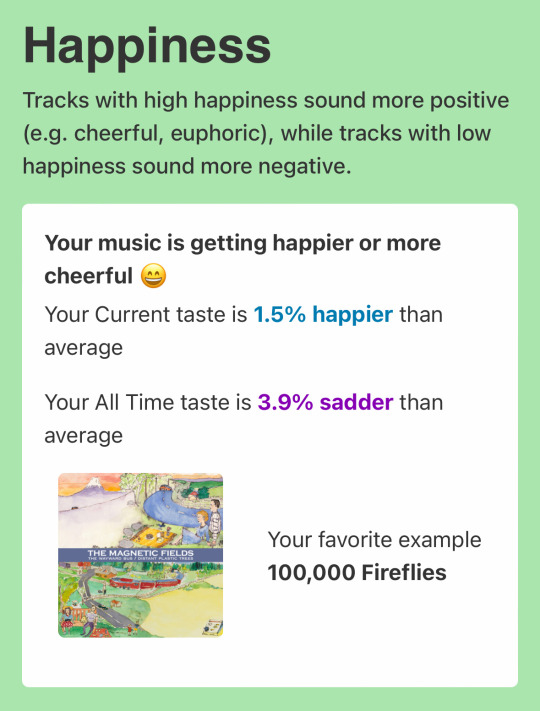#soundcloud algorithm
Explore tagged Tumblr posts
Text
#soundcloud#music#how to get more plays on soundcloud#dark#soundcloud tips#xxxtentacion#how to get in soundcloud playlists#spotify#how to get 1000 followers on soundcloud#how to get more soundcloud plays#soundcloud ai#soundcloud plays#soundcloud tutorial#how to#2021#archivecore#бит#distrokid#how soundcloud algorithm works#how to download music from soundcloud#music marketing#famous dex#streaming#shorts#jake#soundcloud growth#soundcloud for artists#soundcloud algorithm#type beat#soundcloud followers
3 notes
·
View notes
Text
Ah yes let me listen to

While I get some work done mmm I wonder what's going on here.
"...This stuff is also happening on music platforms like Spotify too, so it's not like using another musical platform is really an option."
HUH!??!?!?! WHAT!??!?!?
"And even if it was, that shouldn't be the solution."
NO. NO! NOOO!!!
You can't, you can't just dismiss the competition! Youtube and Spotify are not the only places to listen to music are you kidding me!??!?! Both Youtube and Spotify are music platforms that heavily rely on algorithms to deliver music to you. Of course bots and AI slop are going to take advantage of that! This video talks a lot about how Youtube playlists and recommendations are getting ruined by the slop. That's a shame, really, but consider what you're saying here!
There are options!!!!
Bandcamp and Soundcloud are right there!!! They're right there!!!!!
I go to the first page of Bandcamp and what do I get??? Featured Artists being promoted by Bandcamp, a list of current top selling albums on the platform, new and notable albums that were released on the platform recently, and encouragement to explore the tags.
What do I get on Soundcloud??? Music I recently played, Recommendations based on songs I previously liked, Other recommendations based on who I follow and listen to, Soundcloud's featured artists that get promoted.
Both platforms use tags that are set by whatever musician uploaded the music. They both encourage you to curate your music yourself or explore what others have curated. Yes, there's some algorithm stuff on their front pages, but these algorithms are properly built to promote real people and not just bots taking advantage of the system. Soundcloud has a feed just like other social media platforms, and that feed is only for what YOU follow.
Heck, you could even use Audius! I don't personally use the platform myself, but it functions like an alternative to Soundcloud. It has much of the same appeal. Its front page shows what music is currently trending, but guess what, it has a feed and it encourages you to curate it!
I get it, a lot of artists don't use these platforms, but what ties them all together is that they're doing what we want them to do: Actually support musicians. Artists aren't incentivized to use the platforms strictly because they're less popular, but it doesn't mean these platforms are worse than Youtube or Spotify.
Spotify sucks ass! They're literally infamous for being infested with bots, fake genres, and barely paying artists. You can buy an artists album for $5 and you would be paying them more money than they would get if you listened to them on Spotify for 5 months total.
Youtube pays a bit better, but they don't give a flying fuck about music! They're trying to have the whole cake and eat it too with movies, games, and other social media interaction. (text posts, polls, pictures, and the such.) They want people to be using their platforms and ONLY their platforms for everything. Your eyes must be glued to their screens at all times, so what if the algorithm hands you slop? You'll watch it right? It'll promote whatever keeps you there no matter who or what it is! (as long as its legal)
Don't sit around waiting for these platforms to change for the better. LEAVE. If you want to support artists then support them on other platforms if they're available on there!
And I know, I know Soundcloud had a whole exodus some years ago because whoever makes the decisions at Soundcloud is some out of touch buffoon who's getting desperate and doesn't know how to make the platform profitable, but you know what happened with almost every stupid decision Soundcloud made? They rolled it back or it didn't follow through with it. They're at the mercy of the userbase. The platform has issues, but I'd never give it up for the lack of respect and slop Spotify and Youtube have. Soundcloud's my musical hellsite (affectionate)
Bandcamp, as far as I know, has 0 controversy outside of the big companies who bought them and laid off half the Bandcamp staff. That wasn't Bandcamp's fault! They just got fucked over by Epic, otherwise they're still doing great! Bandcamp just needs to modernize their platform a little bit. (HOW IS THERE STILL NO VOLUME SLIDER)
Again, no comment on Audius, but hell maybe I'll start using that too.
And if you're SO INSISTENT on using Youtube for music, don't rely on the algorithm for your content! You can curate what you see on there you know! Subscribe to people, actually look at your subscription feed! If you want to use recommendations, you can adjust that too! Every time you see some AI bullshit click on those 3 little dots and either click "Not Interested" or "Don't recommend channel". I hate Youtube's guts when it comes to music, but they at least gave you options to if you hate what the algorithm is showing you. Use them!
Fuck!
Sorry that video got under my skin, it's not a bad video all things considered, but that one point got me heated.
#youtube#music#soundcloud#bandcamp#algorithm#spotify#curator#and enough of this “Release this on Spotify!” “When is it coming to Spotify!” shit!!#WHEN IS IT COMING TO BANDCAMP#WHERE'S THE BANDCAMP RELEASE!?!?!?
55 notes
·
View notes
Text
Life sucks, but I'll ride it out til my last day
#DUCKBOY#coping strategies to combat the algorithm [vol.7]#G59#he did it again 😤😈🤘🏻#SoundCloud#$uicideboy$
6 notes
·
View notes
Text
tagged by the lovely @hopeinthebox to do receiptify a few days ago but i've been gone....better late than never!

#this is highly influenced by my vintage christmas playlist#also i didn't listen to spotify at all for the last several days so#take of this what you will#i usually let the algorithms daily playlists take the wheel#and i also listen to a lot of edm on soundcloud#so this is meaningless but#fun!#and my user name is very old and cringe so#blurred to protect myself from embarrassment#thanks for the tag i will always do them!
2 notes
·
View notes
Text
This is so fucking funny

Famously happy song that begins with:
🎵I have a mandolin, I play it all night long,
It makes me want to kill myself 🎶
#I totally understand why an algorithm would consider this a happy song but the choice of this song specifically is so fucking funny#my guy I listen to Carly Rae Jepsen and THIS is the song you choose as an example of happy music I listen to???#not to mention I specifically love this song bc the final line is suuuuch a fucking gut punch#“why do we keep shrieking when we mean soft things? we should be whispering all the time…”#like fuck 🥹🥹🥹#also tumblr live is gone from the toolbar and the posting button is back on there?!?! oh happy days oh happy days!#SoundCloud
4 notes
·
View notes
Text
Algorithmic Harmony: Navigating Musical Serendipity and Fandom Discoveries
Have you ever had the joyous experience of stumbling upon your next favorite song in the most unexpected way? Perhaps it was a track by an artist you had never heard of, prompted by a captivating album cover or a song title that resonated with you. If you've found yourself in this blissful moment of musical serendipity, consider yourself fortunate – the algorithm gods were at work, tailoring your musical journey with precision.

This is a tale of how music and fandom discovery unfold through the intricate dance with algorithms. In a world where the next sonic adventure is just a click away, I found myself captivated by the melodies of an artist I hadn't known before, drawn in by the algorithmic magic that led me to his unique sound.

As I became captivated by this artist, I found myself delving into the depth of their fandom, exploring the digital communities that amplify the passion and connection shared by fans around the world. This is the story of how, in the age of algorithms, every click holds the potential to unveil a new chapter in your musical journey and immerse you in the vibrant tapestry of fandom culture.
The Discovery
One day, I found myself navigating the endless sea of YouTube videos, and in the vast expanse of digital possibilities, serendipity struck. A splash of vibrant blue caught my eye—an album cover named "Big Wave." Its colours, so vivid and reminiscent of summer, drew me in with an irresistible allure.

Intrigued, my cursor hovered over a track called "Magic Ways." With no preconceived notions, I clicked, and in an instant, I was transported to a different world. The music resonated with a kind of enchantment I hadn't expected. The rhythm, the melody – it was an auditory journey that captivated my senses.
Curiosity led me to the comments section, a digital agora where opinions and discoveries intertwine. Amidst the collective musings of fellow listeners, I unveiled the enchanting world of Japanese City Pop—an intricately woven genre with R&B and jazz influences, dating back to the late 1970s and 1980s.
During this era, Japan soared as the world's second-largest economy, poised to surpass the West with its corporate dominance and cutting-edge technology. Upwardly-mobile Japanese citizens embraced a life of luxury, adorned in designer clothes, sipping imported wine, and traversing the globe. The advent of the Sony Walkman and sophisticated car stereos allowed them to curate their on-the-go soundscapes, transforming casual strolls through the city and weekend joy rides into cinematic experiences. City Pop emerged as the soundtrack to this cosmopolitan lifestyle.

The music itself, often exuberant and glitzy, drew inspiration from American styles like funk, yacht rock, boogie, and lounge music. However, the splendor and ease embodied by city pop faced an inevitable downturn. In the harsh reality of the 1990s, Japan's economic bubble burst, thrusting the country into its “lost decade.” This historical context rendered my discovery all the more special, a glimpse into a bygone era that had momentarily slipped away. (Zhang, 2021)
At that time, the allure of city pop hadn't yet transcended the borders of Japan, turning my discovery into a sensation akin to stumbling upon a hidden treasure, a gem waiting to be unearthed from the folds of history.
But the lingering question remained: How did YouTube know I would be drawn to this kind of music? The algorithms seemed to understand the language of my preferences even before I did. In a world where every click leaves a trace, it was as if YouTube's algorithmic magic had orchestrated a symphony tailored precisely to the nuances of my musical taste, opening the door to a realm of Japanese City Pop that awaited exploration.

As I assessed the factors that brought "Magic Ways" to my YouTube feed, I realized that my immersion in the world of lo-fi music and extended jazz playlists had painted a vivid portrait of my musical preferences. The algorithm, a vigilant observer of my likes and watch history, seemed to anticipate my evolving taste. Furthermore, around 2016-2017, the genre "vaporwave" experienced a surge in popularity. Defined partly by its slowed-down, chopped, and screwed samples of smooth jazz, 1970s elevator music, R&B, and lounge music from the 1980s and 1990s, vaporwave heavily sampled from Japanese City Pop songs during that time, creating a nostalgic and disorienting sonic landscape (Rinehart, 2023). Japanese City Pop, with its inherent nostalgia, seamlessly fit into this musical milieu.

Around the same time, "Plastic Love," a Japanese City Pop song by Mariya Takeuchi, started gaining popularity. A remix of the song by future funk artist Night Tempo, released on March 11th, 2016, garnered over 2.4 million views.
youtube
Beyond that, the surge in popularity sparked discussions within online communities, notably on the /r/listentothis subreddit, where it gained significant attention. This exposure, fueled by the enthusiasm of the Reddit community, inevitably led to the song popping up in YouTube recommendations. It was through this virtual serendipity that I was introduced to "Magic Ways," and it swiftly became one of my favorite songs.

Platforms like tumblr or pinterest and other forms diluted the lines blending Japanese otaku culture with mainstream pop culture making city pop’s resurgence a testament to its timelessness.

In this delicate connection between personal preferences, algorithmic insights, and the vibrant energy of digital communities, the magic of YouTube's recommendation algorithms becomes more than a sequence of code; it transforms into a symphony that resonates with the collective harmony of music enthusiasts across the digital landscape.

References
Zhang, C. (2021, February 24). The endless life cycle of Japanese city pop. Pitchfork. https://pitchfork.com/features/article/the-endless-life-cycle-of-japanese-city-pop/
Rinehart, J. (2023, July 23). What is Vaporwave? And Why Is It So Popular? DITM. https://www.deepinthemix.com/what-is-vaporwave/
3 notes
·
View notes
Text
i made a new soundcloud because my old one still had my deadname and i went to re-like all the songs from my old one and it gave me a 1-day ban because i liked them too fast
#that's bullshit but i can't stop thinking about the lil pizza hands post#like apparently if you like too many songs too fast soundcloud goes HMM YOU'RE SUS. MUST BE A BOT!!!!!#fuck off?????#i couldn't be bovvered to check if there's a better way to import your data from the old account i'm just going the manual route gkfkf#i'm from the manually download retitle and upload MP3s onto your ipod gen i'm fine#i've already recreated like half of my playlists#it's just soundcloud's dumbass algorithm thinking i'm spam
3 notes
·
View notes
Audio
#Digitalsmile: - almighty is #epic and with algorithms we get a duality in relation to life, all life and our own life with ups, crises and until the #rhythm, surprising hope #Monkssnap https://on.soundcloud.com/zoV2dKdiHq9d2CTN6
0 notes
Text
great first track on my discover weekly
#i dont usually use spotify but i was listening to some stuff someone rec'd to me the other day#so now i have to retrain my algorithm#SoundCloud
0 notes
Text
#soundcloud#music#how to get more plays on soundcloud#nhạc trẻ remix 2024#nonstop soundcloud#phê pha trên soundcloud#nonstop hot tiktok#how to get 1000 followers on soundcloud#how to get in soundcloud playlists#nhạc gõ#how to increase soundcloud plays#soundcloud plays#thái hoàng#how to get more soundcloud plays#nonstop 2024#jake#music marketing#shorts#electronic music#soundcloud ai#soundcloud algorithm#soundcloud tips#how soundcloud algorithm works#lil pump#soundcloud app#how to#sound cloud#soundcloud rappers#no jumper#how to upload music to soundcloud on iphone
0 notes
Text
AI Data learning and Data management:
Learning and Integration of predictive algorithms for information subsequent subsets, data storage and advanced AI learning:
Sure, here are some of the algorithms I am using in my project: Linear regression: This is a statistical method used to model the relationship between a dependent variable and one or more independent variables. The equation for linear regression is as follows: y = β0 + β1x1 + β2x2 + … + βnxn where y is the dependent variable, x1, x2, …, xn are the independent variables, and β0, β1, β2, …, βn are the coefficients of the model.
Support Vector Machines (SVM): SVM is a supervised learning algorithm that can be used for both classification and regression tasks. The algorithm works by finding the hyperplane that best separates the data points in the dataset. The equation for SVM is as follows: y = f(x) = w^T x + b where w is the weight vector, x is the input vector, and b is the bias term.
Decision Trees: Decision trees are a type of supervised learning algorithm that can be used for classification and regression tasks. The algorithm works by splitting the dataset into subsets based on the values of the features, and then it creates a tree-like structure that maps the decisions that need to be made to reach the desired outcome. The equation for decision trees is as follows: y = f(x) = w1x1 + w2x2 + … + wnxn where y is the outcome, w1, w2, …, wn are the weights, and x1, x2, …, xn are the features.
Naive Bayes: Naive Bayes is a probabilistic classification algorithm that is based on Bayes' theorem. The algorithm works by assuming that the features are conditionally independent, which means that the value of one feature does not depend on the value of any other feature. The equation for Naive Bayes is as follows: P(y|x) = P(x|y)P(y)/P(x) where P(y|x) is the probability of y given x, P(x|y) is the probability of x given y, P(y) is the prior probability of y, and P(x) is the marginal probability of x.
K-Nearest Neighbors (KNN): KNN is a non-parametric classification algorithm that works by finding the k closest neighbors of a point in the dataset and using their labels to predict the label of the point. The equation for KNN is as follows: y = f(x) = 1/k * (w1y1 + w2y2 + … + wkyk) where y is the predicted label, k is the number of neighbors, w1, w2, …, wk are the weights, and y1, y2, …, yk are the labels of the k closest neighbors.
Random Forest: Random Forest is an ensemble learning algorithm that combines multiple decision trees to create a more accurate and robust model. The algorithm works by creating multiple decision trees, each with a random subset of the features, and then using the majority vote of the trees to make a prediction. The equation for Random Forest is as follows: y = f(x) = 1/n * (f1(x) + f2(x) + … + fn(x)) where y is the predicted label, n is the number of trees, and f1, f2, …, fn are the individual decision trees.
Neural Networks: Neural networks are a type of artificial intelligence that is inspired by the structure and function of the human brain. The algorithm works by using a network of interconnected nodes, or neurons, to process input data and make predictions. The equation for neural networks is as follows: y = f(x) = w1 * f(w2x1 + w3x2 + … + wnxn) + b where y is the predicted label, w1, w2, …, wn are the weights, x1, x2, …, xn are the input features, and b is the bias term.
#datastorage#DataManagment#Data Sequencing#Data Filing#datascience#Algorithms#playstation7#deardearestbrands#ps7#digitalconsole#framework#python#soundcloud#celestiallink#algorithms suck#youtube#deardearestbrandswordpress#DEARDEARESTBRANDS
0 notes
Text
I think if we shifted our point of argument from “ai bad” to “damn you couldn’t even afford a real artist you’re too broke you had to use ai”, at least a few tech bros would stop using it
#this coming from somehow terribly fucking up my Instagram ad algorithm#and now apparently it only shows my ads that use ai generated images#doesn’t matter what it’s actually advertising#but it’s usually crypto bros or SoundCloud artists or who knows what#and I have a block list of over a thousand accounts but I think instagram thinks me clicking on their accounts to block them is still me#interacting with them so it keeps giving me more#ai#ai art#ai art is not art
1 note
·
View note
Text
In the dance of numbers, algorithms weave,
Patterns of logic that we conceive,
Threads of code in intricate array,
Guide our choices and light the way
1 note
·
View note
Text
#the music has been so spooky and foretold#either the algorithm *knows*#or perhaps#just maybe#possibly#it's something a lil more#but who knows#SoundCloud
0 notes
Text
Lyrics, Languages & Luck
October 31, 2023
The Search
So a couple days ago I came across a nightcore song called How Do You Do. It might have been on tumblr, simply through my Spotify feed or maybe on TikTok, i don’t remember. Anyways, I listened to it on Spotify and the specific version on there is by Nightcore Fanatics. It’s different from most other versions that show up on Google & YouTube in one major way: it has a non-english part somewhere in the middle, sort of like a second chorus. The original song (well sort of, we’ll get into that) doesn’t have a part in another language. So i started looking for the lyrics.
First the obvious, the lyrics button in Spotify itself. Turns out the lyrics aren’t synced to the song and a major part, the part that I’m looking for, is missing and just represented with an ellipsis (…). Similar to how it still is here (as of October 31, 2023 ).
To Google we go, where I made a couple discoveries: - there’s a ton of different versions, both nightcore and not - it’s hard to find stuff because How Do You Do! - Roxette also exists - the two major non-nightcore versions are by Boom! and BeFour - neither has the non-english section - there’s lots of websites claiming to have the correct lyrics but they either have the standard english-only lyrics or the spotify-version with the ellipsis
The Surrender
At this point a was feeling like just leaving it be even though I had the song on repeat and really wanted to know what it says, but I decided to look a bit more. In the Wikipedia article about the BeFour song it said that the actual original song is a Russian song called Kanikuly by Bum, so I thought maybe it’s from that song. But no, it sounds completely different.
On Spotify it credits Kim Peter Göran Johansson Karlsson as the songwriter, which is an extremely Swedish name. Additionally it also sounded kind of Scandinavian to me (that’s probably just my bias due to the languages I’ve been exposed too and Caramelldansen) which led me to believe I was on the right track. However, my limited Swedish skills in conjunction with various translation and automatic speech recognition tools as well as conversations with multiple LLMs didn’t get me anywhere.
The credited record label is 1702219 Records DK which I thought might be Danish but it turns out DK just stands for DistroKid, a music distribution service. So no luck there.
I also found this version on SoundCloud which said it was Russian but I assumed that was wrong and probably just due to the original song mentioned earlier. It did not sound like Russian to me at all, probably because I’d never heard Russian in that high pitched nightcore voice.
So then I gave up.
The Resolution
Just today, three days after first looking into this I told a friend (who coincidentally knows a little Russian) about my search over lunch. He went on Spotify to listen to the song a few hours later and then sent me a text á la “Hey, it’s Russian, the lyrics are right here on Spotify”. At first I didn’t believe that because Spotify was obviously the first place I’d looked but it turns out they updated the lyrics very recently and they in fact now have the full (russian) lyrics. So know I present:
The Russian Lyrics to How Do You Do - Nightcore Fanatics
Превед медвед, Мы не виделись сто лет, Я везде тебя найду, How do you do you do
For those who can’t read Cyrillic:
Preved medved, My ne videlis' sto let, Ya vezde tebya naydu, How do you do you do
And in English:
Hello bear, We haven’t seen each other for a hundred years, I’ll find you everywhere, How do you do you do
The Backstory
The lyrics being updated exactly now sounds like a massive coincidence and a ton of luck for me of course but I’m not sure it is. I obviously somehow got to this song exactly now for some reason and i think that reason is an algorithm, maybe the Spotify recommendation system, maybe TikTok, maybe tumblr, maybe even YouTube, maybe multiple of them together. I’m pretty sure that song is going a bit viral somewhere right now and I’m just part of that wave which is why Spotify was getting much more traffic on that song and decided to prioritize the lyrics. Another example for how marvelous the internet really is.
I also found a reddit thread about exactly this today where the guy transcribing the lyrics asks for help which is kind of funny.
Finally, what does Hello bear actually mean? Well, it stems from a big Russian meme about a peculiar picture. In this slang words are purposefully misspelled (”Preved” instead of “Privet”) which then leads to the according to the “cringe af” lyrics. This is a good starting point if you want to read more.
#nightcore#lyrics#language#coincidence#algorithm#how do you do#preved#spotify#music#reddit#tiktok#nightcore fanatics#boom!#befour#distrokid#soundcloud#caramelldansen#russian#kanikuly#internet research#meme history
0 notes
Audio
#Algorithmic #apocalypse: - when faith becomes a number, love measured in "likes", and grace is only given according to the terms of use` algorithms make you believe you are too ugly to be loved, and too suboptimal to be human - #Monkssnap #AI https://on.soundcloud.com/1heisu2ktG6WLKuh7
0 notes